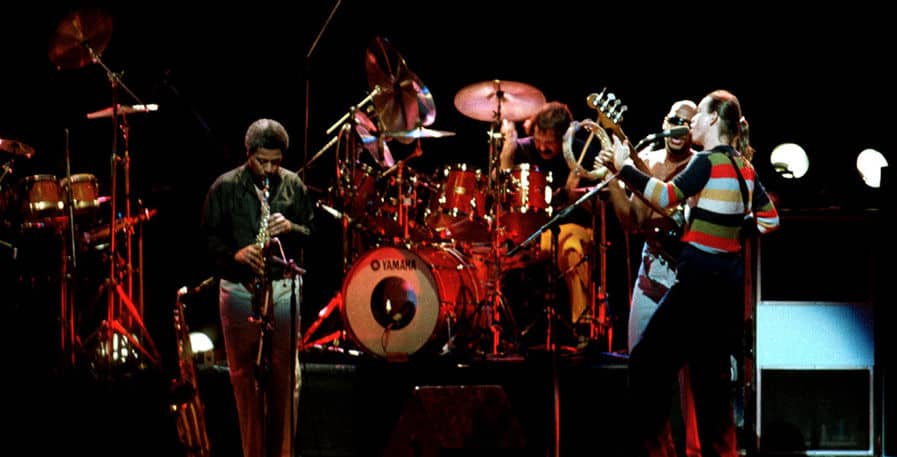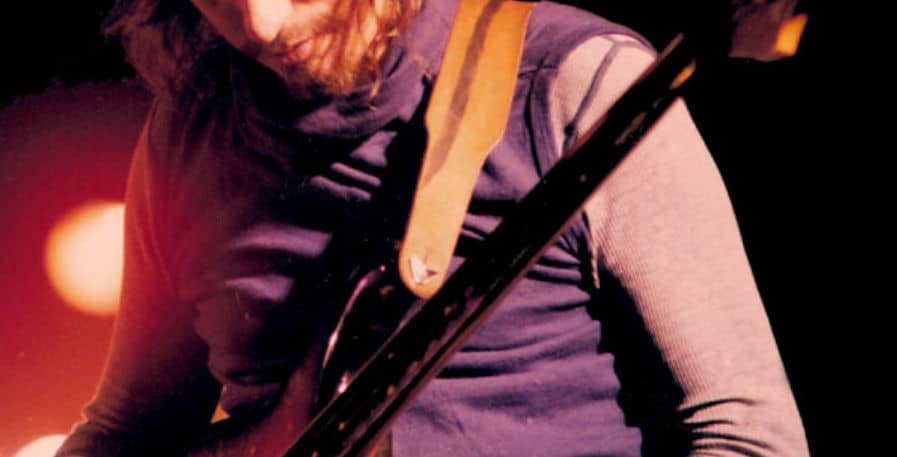Jaco Pastorius` bass of doom is one of the most well-known bass guitars in the world.
Yet, few bassists who have reached a similar level of success as him are as well-known for their instruments.
Thus, I decided to make this article to showcase what makes the bass of doom so special.
I`ll cover what Jaco did to the bass to make it stand out, as well as some external factors that have made the bass even more iconic. Lastly, I`ll tell you what happened to the bass after Jaco`s death, and where the bass is today.
What is the bass of doom?
The Bass of doom is a 1962 Fender Jazz Bass, famously played by Jaco Pastorius. The instrument got its fame from being Jaco`s main bass from the early 70s to 1986. Jaco also made modifications to the bass which gave it a unique sound and look.
There are several reasons this sunburst Fender Jazz bass has become one of the most well-known basses in the world. Here are the 4 main ones:
1. Modifications
Jaco customized his Fender jazz by removing the frets on it to turn it into a fretless bass. He has claimed to have done so using a butter knife.
He also coated the neck with boat epoxy. While epoxy resins are used to coat bass fretboards, using boat epoxy is unconventional.
Thus, the modifications to the bass of doom made it a completely unique instrument. These modifications also became talking points due to Jaco`s unique DIY methods.
2. Effects of the modifications
The most notable effect of the abovementioned modifications was what they did to the tone of the bass.
In particular, the lack of frets greatly changed the tone of the instrument. Without frets, the strings of a bass vibrate in a completely different pattern than with frets. This is because they vibrate against a single big surface (the whole fingerboard), as opposed to lots of small surfaces (the top of the frets).
This results in a warmer tone. As the jazz bass was not designed to be fretless, this resulted in a tone that was resemblant of both a fretted fender jazz and a fretless bass at the same time.
3. Main Bass
The biggest reason the bass of doom is such a famous instrument is that it was played by one of the most influential bassists of all time. Jaco`s groovy style combined with his use of harmonics on the bass has resulted in bassists and non-bassists alike holding him in high regard.
It ain’t braggin’ if you can back it up!
Jaco Pastorius
Some bassists of his stature have played a multitude of basses and thus rarely have an iconic instrument connected to their name.
However, the bass of doom was Jaco`s main bass, and he played it throughout the entirety of his career.
Thus, when you hear an amazing bass lick from Jaco, chances are good that it was played on the bass of doom. Furthermore, by mainly playing a single instrument Pastorius made the bass of doom synonymous with his name, and thus all the more iconic.
4. Breakage and Theft
Towards the end of Jaco`s life, the bass of doom was broken, restored, and then stolen shortly afterward.
The bass was broken in 1986, with the instrument breaking into many smaller pieces. Jaco then had it restored by a luthier.
This did change the overall look of the instrument, but it made it also made it playable again.
Only shortly thereafter, the bass was then stolen from Jaco in Manhattan. The bass remained lost past Pastorius`s death in 1987, which resulted in discussions about the whereabouts of the instrument.

Where is the bass of doom now?
The bass of doom is legally owned by Robert Trujillo and is in the possession of Jaco Pastorius` family. While Trujillo is the legal owner of the bass of doom, he has stated that any decision regarding the instrument has to go through Pastorius` family.
The bass of doom was stolen from Jaco in New York in 1986, briefly after he had it restored.
It was not before 2006, that the bass resurfaced, where it was found in a New York music store. Due to the sentimental value of the instrument for Jaco`s family, they wished to acquire the instrument when they heard about it.
However, the owner of the music store was not willing to give up the instrument. This resulted in a legal battle between the shop owner and the Pastorius family.
As the court case lasted several years and was a financial burden to the Pastorius family, Metallica’s bassist, Robert Trujillo stepped in to help. Trujillo considered Jaco a hero of his and thus felt that helping in recovering the bass guitar was the right thing for him to do.
Trujillo then offered up money to pay the owner of the bass of doom. The owner of the bass accepted, which made Trujillo the owner of the instrument. Trujillo then let the Pastorius family hold onto the bass and keep it in their possession.
I’m its legal owner, but I made a point of ensuring that any decision made about the instrument has to go through the family.
Robert Trujillo – 2014 Blabbermouth Feature
The bass of doom has since then been in the Pastorius family, though Trujillo has also played it live on occasion. There have also been instances of Jaco`s son, Felix Pastorius, showcasing the instrument.
Due to its unique meaning and value to the Pastorius family, it thus seems unlikely that the bass of doom will ever disappear or be put up for sale again.
Conclusion
For these reasons, there are few basses that have, or ever will, reach the iconicness of the bass of doom.
With it, Jaco has inspired countless bassists to emulate him and write melodic basslines. He also pushed the limits of the instrument, both through modifications, playstyle, and the use of harmonics.
Fender has even released a signature Jaco fretless jazz bass. Thus, while it is unlikely that the original bass of doom will ever be for sale, bassists can still get their hands on the next best thing.
Given how influential Jaco and his instrument still are to this day, I expect Fender to not stop making these any time soon. The fretless sunburst look of this Jazz bass is as iconic as it gets, and given the lore around the instrument, I don`t expect the discourse around the instrument to ever die out.

